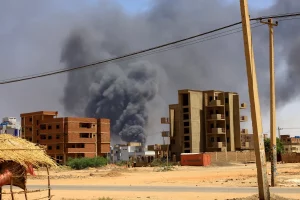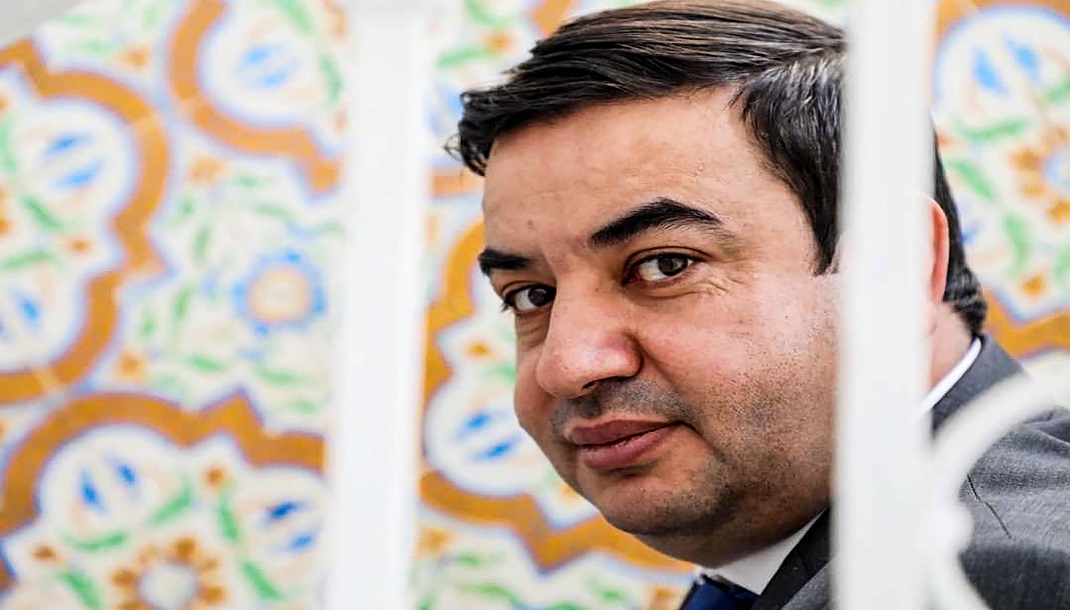SpringTime for Arab Movies?

With Mauritania’s Nouakchott being chosen as the capital of culture in the Islamic world for 2023, now is a good time to review the prospects for the Arab film industry.
Even as the picture accompanying Martin Jay’s report on that event shows, the Arab world is spoiled for locational choice. Lawrence of Arabia, David Lean’s Hollywood blockbuster on the Arab Revolt, confirms that. If you want colour, culture and contrast, you needn’t go beyond the Arab world. Lawrence of Arabia is not alone as many other Hollywood efforts have been set in the Middle East, Morocco, Tunisia and across the entire region.
But therein is the crux. Hollywood has long had a stranglehold on the industry, which began well over a century ago in France, before blossoming in Britain and consolidating itself in Hollywood. Taking on Hollywood at film-making seems akin today to taking on McDonald’s at burger-making. It is not for the faint-hearted or short-sighted.
Although they say Hollywood has only three or so plots, that is all they have ever really needed to pack them in and sell them their popcorn, at outrageous markups, it has to be noted.
But Hollywood has enjoyed other huge advantages as well, not least in distribution and in advertising by way of the Oscars and other back-slapping industry exercises. Plus, as Tom Cruise’s Top Gun and a range of other films have shown, the US military has not been averse to lending Hollywood its big and very expensive toys, as long as Hollywood stays on message.
The Arab world cannot, of course, hope to compete with that. But what they can try to do is emulate the examples of Korea, Iran and China, after they copycat Australia, most of whose movies were flops until The Man from Snowy River, Mad Max and Crocodile Dundee came along. Though the Ossies had spectacular locations and top-drawer skills, they just couldn’t nail it until those films broke their own glass ceiling.
I noticed this same phenomenon in Iran, where armies of young women journalists move about with top of the range Japanese equipment but where they and their compatriots have been slow to crack the same ceilings that long withstood Australia’s best efforts.
Whereas the Japanese seem content to retreat into anaemic samurai movies, the Koreans but especially the Chinese are giving Hollywood the heave ho. In China, Chinese-made films, with Chinese playing the leads in everything from slapstick movies to epic war films are breaking all box office records.
Although our good friends at the Guardian have ridiculed, albeit wittily, some of these efforts, that is to miss our point. China has arrived as a movie-making super power, no matter how you like your Jackie Chan movies served to you. Add to that Bollywood and Nigeria and we see that there is much more to cine than Hollywood.
The problems of Arab cinema are problems of division. Though its heart and much of its talent has been in Egypt and Syria, its finances now lie further to the East in the oil and gas rich nations of the Arab Gulf, whereas Tunisian and Moroccan efforts have to rely in too large part on European Union co-production deals, thereby, as often as not, making the end product non-viable by pulling it in too many contradictory directions.
Before we condemn European neo-imperialism over this, let’s take a simpler example from Ireland, where Love/Hate, an Irish version of the Sopranos, ran over four seasons to justifiable rave reviews. Because it failed to get serious international distribution, this production barely broke even and, as with similar European outputs, financially, it was hardly worth the effort.

The real problem then for Arab cinema is to find appropriate projects that will get the necessary financing and distribution, which is a major headache in the Arab world, where pirating is endemic.
When it comes to putting bums on seats, the Middle East movie and entertainments industry is currently worth about US$2 billion and the U.S. has much of that market cornered and has no intention of simply gifting it to the locals.
If the Arab film industry is to rise above that, it must decide on a number of projects it can run with trans-nationally and for which it can secure Gulf or East Asian financing without too many stultifying strings attached.
Although the Gulf states have the necessary finance to replace the European funding that is currently pivotal in Tunisia and Morocco, they tend to have too heavy an editorial hand and, until they are content to allow Egyptian, Tunisian and Moroccan directors get on with it, the plans of Saudi Arabia and its Gulf competitors to be the movie moguls of the Arab world will come to nought.
The Chinese and Koreans might make better partners for, if we move further north, into Spain, we see that The Way of St James is the world’s biggest pilgrimage route, thanks in no small part to Martin Sheen’s The Way but also to Koreans, who have made a number of very successful movies and Reality TV series about Koreans undertaking this 1000 km trek. If you ever undertake this pilgrimage, the armies of smiling Koreans moving Westwards towards Santiago, the grave of St James, are impossible to avoid.
Although these smiling Koreans are not enough to kick start an Arab industry from Mauritania in the West to Iraq in the East, they are indicative of what can be done in Arab settings with Arab and Asian talent, ingenuity and money.
And so, in conclusion, we have to hope that, this year, out of Mauritania and elsewhere in the Arab world, well-funded efforts will arise to breathe fresh life into the cinematic world Egyptians, Syrians, Moroccans, Tunisians and other Arabs of earlier generations have given their best efforts to. And, although not all of these efforts will be immediately financially successful, the smiles of Arabs from Mauritania to Iraq will compensate for that and give hope of better, more bankable efforts to come.
Declan Hayes












